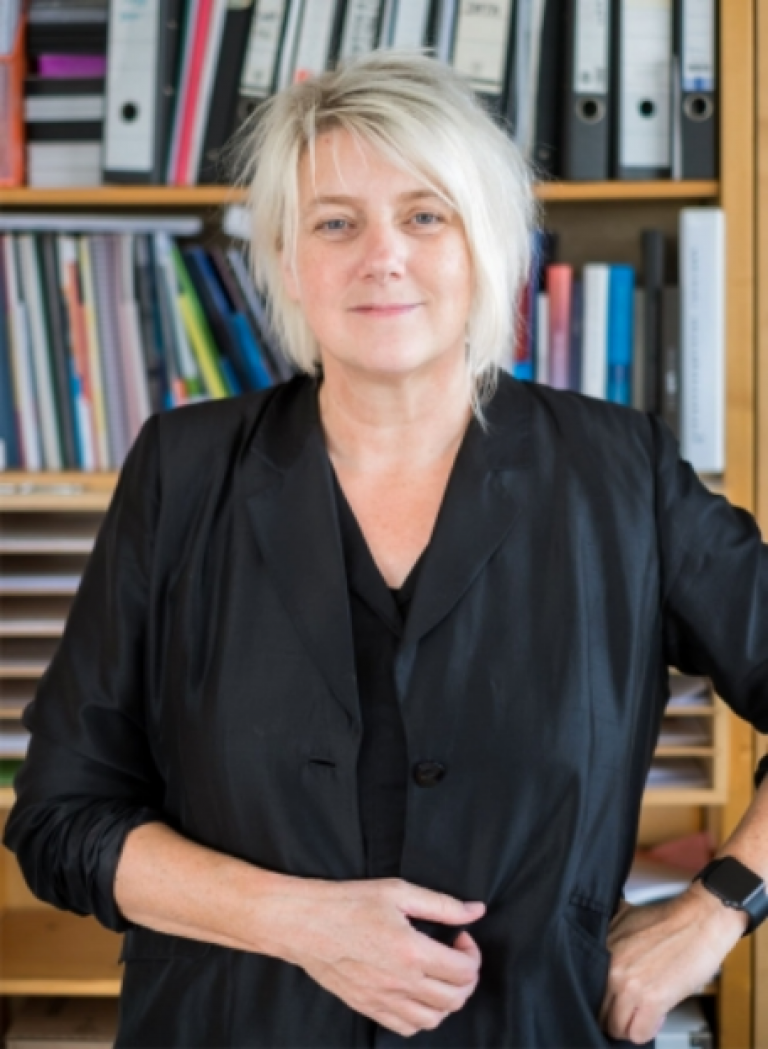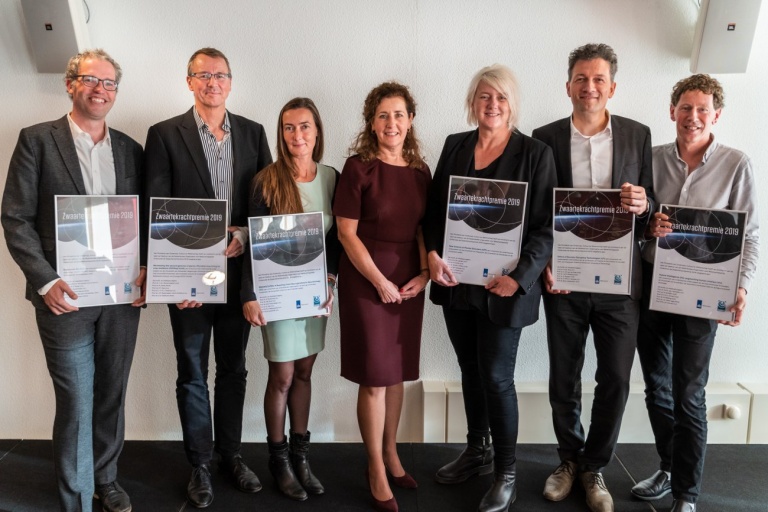Although depression looks different for each person, the treatment is the same for everyone. At the same time, the treatment of psychological issues in most cases is insufficient. A research consortium led by UM professor Anita Jansen hopes to change this, with the help of the Gravitation programme grant they just received.

With this grant, which is the largest Dutch research grant (ultimately 20 million euros over ten years), they will zoom in on the symptoms of mental illness. That is because if you treat those (and focus less on their cause), the treatment could be much more effective.
It was a massive stroke of luck that she had to undergo surgery last summer after she had broken her foot around Christmas, Anita Jansen herself says. “I had to wear a plaster cast for seven weeks and was not allowed to walk. During that time, I polished up the application for this grant.” That is because conducting research and applying for grants is all done outside of working hours when you are dean of the Faculty of Psychology and Neuroscience.
The added value of a holiday home and hotel
About three years ago, during the previous round of the Gravitation programme applications, she also submitted the proposal. “The idea was still very good, so we wanted to try again. And do it better.” For both attempts, she spent a week in a holiday home with Carolien Martijn, the managing director of the faculty, who is also a senior researcher in Jansen's research group. “I don't think it happens often that a dean and a director apply for the Gravitation programme together”, she laughs. Just before the interview by an international, twenty-member assessment committee, she spent a weekend in a hotel with the five other principal investigators. “I got that tip from someone once and I really think it works well. We discussed our proposal endlessly and had a lot of fun; you really feel like you’re partners in crime. Apparently, that’s the vibe we gave off.”
Champagne on Monday morning, half past ten
The assessment committee was not only impressed by the content, but also by the diversity within their group and their team spirit. After the interview, the wait for the results began. Jansen: “Even on holiday you think, ‘Should I check my e-mail?’. Because if there is a rejection, you really get down in the dumps about it.” Finally, on Monday morning she got a WhatsApp message from the rector, Rianne Letschert: “I'm so proud of you!” Jansen: “I didn't know anything, so I reacted with seven question marks. At the same time, the secretary walked in, saying that there was a letter from the Minister about the awarding of the grant. Then, at half past ten, we opened the champagne.”
The respective depressions of Harry and Sally; yes, from the film
In order to explain exactly what the innovative character of this project is, Jansen shows a PowerPoint slide which she also showed to the assessment committee. Harry and Sally from the film ‘When Harry met Sally’ play the leading role. Suppose they are both depressed (what they discuss and deny in the film), then their symptoms differ. There are nine official symptoms of depression and if you have five of those, the diagnosis is confirmed. Jansen: “But Harry doesn’t have the same five symptoms as Sally. And we believe that the network of those symptoms, so how they affect each other, is the actual disorder. We are convinced that this ‘cognitive architecture’ looks different for each patient, so that requires customised treatment.”


Psychological illnesses require a different approach to research than physical illnesses
The consortium thus breaks with the traditional approach to psychiatric diagnostics, where the focus is on the disorder and the search for a single cause. “We speak of transdiagnostics. And we will research in the coming years, for example, why poor sleep leads to lethargy, leads to depression, leads to excessive eating behaviour, leads to absenteeism due to illness, leads to even worse sleep, and so on. We want to understand and inhibit these interactions.” The traditional research focus on the cause of an illness comes from the medical world. “That’s fine there, but clinical psychology requires a different perspective. Let me put it this way—you can have cancer without symptoms, but not depression.”
A mathematical model for analysing symptoms
First, the consortium of 19 scientists from seven universities is going to map out the symptom networks of a thousand people with mental health problems. One of the ways they will do this is by following them for a period of time with smart measuring instruments for both physical behaviour and psychological well-being. This information will be captured in a mathematical model, with which the interactions between different symptoms can become apparent. At the same time, six teams, each led by a professor, will examine the transdiagnostic process from a different angle. How do the mind and body interact, for example? How can the intensity of trauma be reduced through emotional memory? How are the symptom networks of children influenced by each other? “Because one in ten children also suffers from mental illness.”
Finally, a substantial research grant for mental illness
The last leg of the project is about the treatment; in a randomised controlled trial, patients will be blindly divided into three groups. The first group will receive normal treatment; the second group will receive mainly medication (which can make a difference in the short term, but often not in the long term); and the third group will receive a new ‘network-based’ therapy. “This type of treatment study is particularly expensive. You can’t do it without a grant like this, so we are very happy with it!”, says Jansen. “In comparison with other illnesses, research into mental illness is considerably underfunded. While in the Western world, 38% of all illnesses that occur are psychological. And the impact on individuals is major, but it also costs society a lot of money due to sick leave, as research shows time and time again.”
20 million euros for 10 years
In other words, every euro that is invested in this project over the next ten years will (if all goes well) be repaid in full. Ten million euros is allocated for the first five years and if it receives a positive assessment, this same amount will be given for five years of further research. At the psychology faculty, they are still celebrating. And the search for a new dean will undoubtedly begin soon. Jansen: “Formally, my term runs until June, but I have always said, ‘If I get the Gravitation programme grant, I have to stop as dean.’ I can't do this in the evenings, weekends and nights. And that’s nice to do again—to be able to work on your research during the day.”
This interview was originally published on the Maastricht University website.